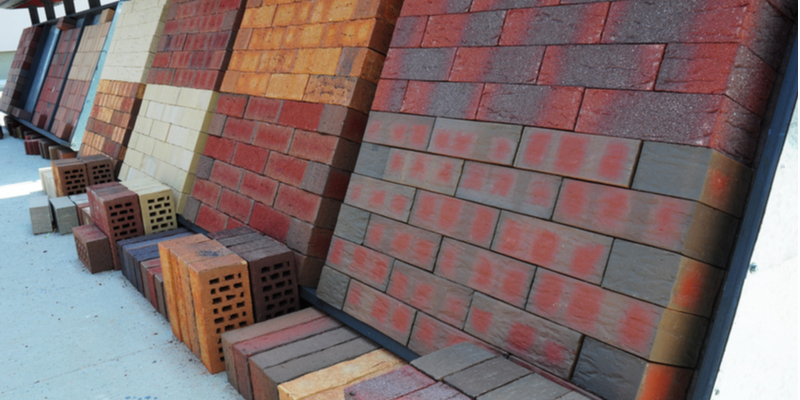For homeowners choosing the perfect materials for their project can often be challenging. For instance, when planning a walkway or patio, how do you decide between concrete and brick pavers. Pavers is the term given to flat, thin stones design specifically for projects like walkways, patios, or even driveways. Concrete and brick pavers are installed in like manner and both will provide you with durability and longevity for your completed paving project. While much of the decision is dependent on your personal style, it is important to know the pros and cons of both concrete and brick pavers.
The Facts about Concrete Pavers
Concrete pavers are fashioned from blend of concrete and aggregate which is poured into forms, compressed, and cured. Because concrete can be colored with a wide range of hues and formed into a plethora of shapes and sizes, concrete pavers offer more options than bricks. Let’s explore the pros and cons of concrete pavers.
The Benefits of Concrete Pavers
- In addition to being available in a wide array of colors, sizes, and shapes, concrete is also offered in a number of textural designs to mimic other materials such as natural stone.
- Concrete pavers, due to a lower materials cost, are less expensive than brick pavers.
- For do-it-yourselfers, concrete pavers are easier to install.
- As innovators in the industry continually develop better and stronger concrete pavers, the possibilities are endless.
The Downside of Concrete Pavers
- Because of the colorization process used in concrete pavers, your pigmented concrete pavers can fade as time passes if sealants are not consistently applied (increasing the maintenance needed).
- Concrete pavers can wear down over time, damaging the finish and exposing the aggregate, an issue which brick pavers don’t face.
- Concrete pavers have a short lifespan than brick pavers (decades versus generations).
- Concrete varies a great deal in regard to durability and strength, so it is important to choose quality concrete pavers.
The Facts about Brick Pavers
Brick pavers offer a timeless, classic look which is hard to beat. Bricks are crafted from clay, formed, shaped, and cured in a kiln much like pottery. It is important to be certain when choosing brick, that you are getting actual brick rather than another material mimicking bricks, like concrete for example.
The Benefits of Brick Pavers
- Bricks, made from natural clay, so they are able to retain their color more readily.
- Brick pavers compared to concrete pavers have a longer life span (generations versus decades).
- Brick pavers are resistant to stain and require less maintenance.
- Made from all-natural materials, brick pavers are ecofriendly and can be salvaged and reused while still retaining their classic beauty.
The Downside of Brick Pavers
- Bricks present with a higher cost (up to 20 percent more) than concrete. Plus, bricks are may be more costly to install.
- Due to the fact that brick pavers are fashioned from natural clays, the color choices among brick pavers is not as great, and the size and shape options are also limited.
- Kiln firing means bricks can vary slightly in their overall dimensions, making them more challenging for DIYers to install.
- Bricks may crack, chip, or shear as time passes, when exposed to excessive ice, moisture, or traffic.
Making Your Decision
If you are still uncertain whether concrete or brick pavers are the right choice for your walkway or patio, call on the experts at Turnbull Masonry. With years of knowledge and experience, Turnbull Masonry, can answer all your questions and provide solutions regarding the optimal choice for your property and your project. Call today and get started!

